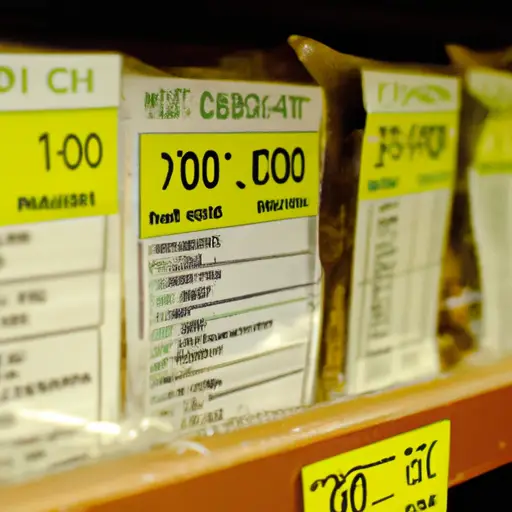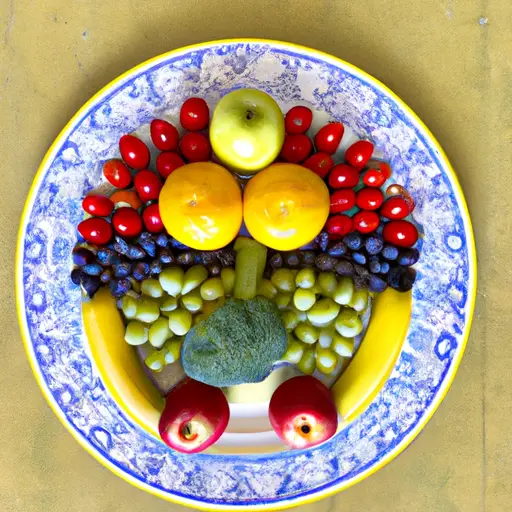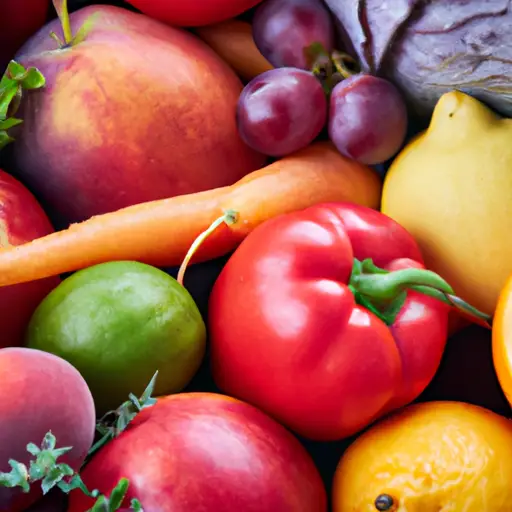Comparing Conventional and Organic Food Prices
1. Introduction
Hey there, folks! Are you curious about the difference between organic and conventional foods? Well, you’ve come to the right place! In this blog post, I’m going to break it all down for you. But before we dive in, let’s start off with a quick definition of what exactly organic and conventional mean when it comes to food.
Now, the term “organic” refers to the way agricultural products are grown and processed. Organic farmers rely on natural methods and avoid synthetic pesticides, genetically modified organisms (GMOs), and antibiotics. On the other hand, “conventional” farming involves the use of synthetic fertilizers, pesticides, and other chemicals to maximize yields.
The purpose of this blog post is to provide you with an overview of the benefits of organic foods and compare the prices between organic and conventional options. So, buckle up and let’s get started!
Benefits of Organic Foods
Ah, organic foods! They’re not just a trendy buzzword; they actually offer a bunch of amazing benefits. Trust me, I’ve done my research. So let me break it down for you, my lovely readers, why organic foods are worth the extra dollar or two.
First off, let’s talk about our health. You see, organic foods are grown without the use of synthetic pesticides, hormones, or antibiotics. That means you’re not ingesting any of those harmful chemicals that can mess with your body. Instead, you’re consuming clean, nutritious produce that’s packed with vitamins and minerals.
But it’s not just about us, folks. Organic farming is also great for the environment. Conventional farming methods often involve using toxins that end up in our soil and water systems, polluting the earth’s delicate balance. Organic farming, on the other hand, focuses on sustainable practices, like crop rotation and composting, which help keep our planet healthy and thriving.
Now, let’s get down to the nitty-gritty: the cost of organic foods. Sure, you might notice a slight price difference when comparing organic and conventional items at the grocery store. But take a moment to think about it. Isn’t investing in your health and the environment worth a few extra bucks?
And here’s a little secret for you savvy shoppers out there: head over to your local farmers market. You’ll often find organic options at a more affordable price. Plus, you’ll be supporting small-scale farmers who are passionate about providing us with high-quality, organic goodies.
So, my friends, the benefits of organic foods are undeniable. They’re good for our bodies, good for the environment, and even good for our wallets if we know where to look. But don’t just take my word for it, dive deeper into the world of organic foods by checking out this fantastic article I stumbled upon. Happy eating!
Price Comparison
Now let’s get down to the nitty-gritty: the price comparison between organic and conventional foods. This is where the rubber meets the road, my friends.
When it comes to grocery stores, you might find that organic foods tend to come with a slightly higher price tag compared to their conventional counterparts. It’s no secret that these little green labels can sometimes dig a little deeper into your wallet. But before you start panicking, hear me out.
Remember, not all organic foods are created equal. The price difference can vary depending on the specific item and where you purchase it. So, I did some digging and discovered a little secret: Farmers markets.
Now, let me tell you, farmers markets can be a game-changer when it comes to buying organic produce. Not only do you get the opportunity to support local farmers, but you may also snag some amazing deals on organic foods. Trust me, it’s like finding hidden treasure!
At farmers markets, you’re cutting out the middleman, which means you’re bypassing those extra costs that often come with grocery store purchases. Plus, farmers markets often offer fresh, seasonal produce at lower prices than what you’d find on those shiny supermarket shelves.
So, my advice to you, my savvy readers, is to give your local farmers market a chance. You might be pleasantly surprised by the affordable options you find and might even uncover some hidden gems.
4. Conclusion: The Scoop on Organic Foods
Alright folks, after diving headfirst into the world of organic foods and comparing them to their conventional counterparts, I’ve come to a few conclusions. Let me break it down for ya.
First things first, organic foods have some serious perks. Your health comes out on top, with organic options being free from those pesky pesticides and synthetic additives. Plus, they are loaded with nutrients that are crucial for a rockin’ body and mind. Not only are you doing yourself a favor, but you’re also helping Mother Earth by supporting sustainable farming practices and protecting our environment.
Now, I know what you’re thinking – organic foods must be pricey. Well, let’s chat about that. When it comes to hitting up the grocery store, organic products typically do have slightly higher price tags than their conventional counterparts. But hey, quality comes at a cost, right? However, don’t fret just yet! If you’re looking to save a few bucks, farmers markets can be your new best friend. They often offer organic goodies at more affordable prices, straight from the hands of local farmers. It’s a win-win, supporting local agriculture and your wallet.
In a nutshell, organic foods are a no-brainer when it comes to reaping health benefits and helping out the planet. Yeah, they might be a bit more expensive in stores, but there are cost-effective options available at farmers markets. Trust me, your body and the Earth will thank you for it. So, go ahead and make the switch to organic – it’s a decision you won’t regret!






